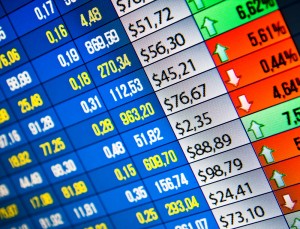Michael Steinhardt

Michael Steinhardt- "I try to assume that the guy on the other side of a trade knows at least as much as I do."
My particular style is a bit different from that of most people. Concept number one is variant perception. I try to develop perceptions that I believe are at variance with the general market view. I will play those variant perceptions until I feel they are no longer so.
Michael Steinhardt
I always used fundamentals. But the fact is that often, the time frame of my investments was short-term.
Michael Steinhardt
My attitude has always been that to make money in the markets, you have to be willing to get in the way of danger. I have always tended to short stocks that were favorites and backed by a great deal of institutional enthusiasm. Generally speaking, I have tended to short too early and, therefore, have usually started off with losses in my short positions. If I short a stock and it goes up a lot, it may skew my exposure a bit, but as long as my variant perception is unchanged, I’ll stay short. If I’m wrong, I’m wrong.
Michael Steinhardt
I do an enormous amount of trading, not necessarily just for profit, but also because it opens up other opportunities. I get a chance to smell a lot of things. Trading is a catalyst.
Michael Steinhardt
I have a fundamental view, which I believe in my heart, but I try to separate that from the short-term fervor and intensity I may see in the market. So even though I am short in that type of situation, I might periodically be a buyer.
Michael Steinhardt
If your problem is so great that you need to hedge it, why not address the problem directly rather than taking on a totally separate position? Let’s say you are short a paper stock and the paper stocks are roaring, so you buy another paper stock against it. Maybe your short stock will go up more; maybe the other stock will go up more. Who knows? If you have made a mistake, deal with the mistake; don’t compound it.
Michael Steinhardt
Somehow, in a business [securities trading] so ephemeral, the notion of going home each day, for as many days as possible, having made a profit- that’s what was so satisfying to me.
Michael Steinhardt
One dollar invested with me in 1967 would have been worth $481 on the day I closed the firm in 1995, versus $19 if it had been invested in a Standard & Poor’s index fund.
Michael Steinhardt
I try to assume that the guy on the other side of a trade knows at least as much as I do.
Michael Steinhardt
I don’t use stop-loss orders or such. I don’t use any rules about buying on weakness or strength. I don’t look at breakouts or breakdowns. I don’t use charts.
Michael Steinhardt
There is a very good investor I speak to frequently who said, “All I bring to the party is twenty-eight years of mistakes.” I really believe he is right. When you make a mistake, there is some subconscious phenomenon that makes it less likely for you to make that same mistake again.
Michael Steinhardt
One of the advantages of trading the way I do – being a long-term investor, short-term trader, individual stock selector, market timer, sector analyst – is that I have made so many decisions and mistakes that it has made my wise beyond my years as an investor.
Michael Steinhardt
The objective of participating in the long-term growth of American equities, willing to suffer through those periods when equities decline, is fine, but it leaves so much on the table in terms of potential professional management. It is an incomplete strategy.
Michael Steinhardt
One of the allures of this business is that sometimes the greatest ignoramus can do very well. That is unfortunate because it creates the impression that you don’t necessarily need any professionalism to do well, and that is a great trap. So the major advice I would give anybody is: Recognize that this is a very competitive business, and that when you decide to buy or sell a stock, you are competing with people who have devoted a good portion of their lives to this same endeavor. In many instances, those professionals are on the opposite side of your trades and, on balance, they are going to beat you.
Michael Steinhardt
Forget the shibboleth that stocks are going to give you a higher rate of return because they are more risky. That is not true. They are more risky; therefore, you have to be convinced that you are going to get a higher rate of return in order to play the game. Don’t assume that by investing in some mutual fund, you are going to get a higher rate of return.
Michael Steinhardt
Good trading is a peculiar balance between the conviction to follow your ideas and the flexibility to recognize when you have made a mistake. You need to believe in something, but at the same time, you are going to be wrong a considerable number of times. The balance between confidence and humility is best learned through extensive experience and mistakes.
Michael Steinhardt
There should be a respect for the person on the other side of the trade. Always ask yourself: Why does he want to sell? What does he know that I don’t? Finally, you have to be intellectually honest with yourself and others. In my judgment, all great traders are seekers of truth.
Michael Steinhardt

























